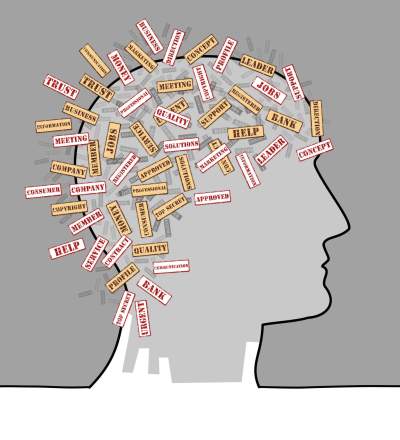More Interesting Facts About the Brain for Leaders and Decision Makers
Welcome to the third installment in our three-part series of blogs on brain myths and facts that leaders and decision makers should know. Here are the links to the two previous posts — part one and part two. 
Decision Making — 95% of decisions are made in the subconscious mind. While these may sometimes feel like gut feelings, intuition, or instinctive reactions, they are actually subconscious thoughts and decisions. Leaders need to learn to slow down in order to tap into and leverage this valuable subconscious decision-making prowess that has been honed through decades of subconscious decision making.
Information flow overload — multiple studies have shown that very high levels of smartphone and Internet use is not good for the brain. It is not just the amount of information swamping our brains, it is also the fact that constant access to information via electronic devices prevents our brains from pausing long enough to catch a breath and refresh.
There is even a syndrome now known as “Google Brain,” caused by constantly searching for more information that exhausts the brain, erodes deep thinking, and saps mental energy. Without a doubt, our brains need regular short breaks from screen time and the buzzing of alert notifications. Personally, I set my smartphone and iPad to airplane mode several times a day, just to keep myself from the temptation of constant information access.
Mental stimulation — the brain naturally craves stimulation. But this is no excuse for instinctively grabbing an electronic device to check email or social media feeds. Good conversation stimulates the brain. As does thinking through a large problem or opportunity. As does mindful meditation. The more mindful the stimulation, the better for the brain. Distractions like mindless television viewing and electronic device checking are not truly mental stimulation.
Multitasking — the brain cannot learn, process, or concentrate on more than one thing at a time. From a cognitive standpoint, multitasking is merely the toggling back and forth between tasks. Doing so decreases the brain’s attention span, processing speed, and memory functions. It also decreases reaction capabilities and speed, resulting in accidents, miscommunication, and emotional outbursts.
The brain is not always inefficient when doing several things at once, especially with activities that are routine and regularly repeated (i.e. you can follow a movie plot and simultaneously eat dinner without spilling all over yourself). But when it comes to higher order thinking, the distractions caused by multitasking can severely impact the brain’s ability to stay focused on a single task. Plus, multitasking has been shown to reduce creativity, increase errors, lower the ability to focus on what is most important, and increase problems with sleep, memory, and stress.
Repetitive thoughts — the brain generates 50,000 (or more) thoughts per day. Many of these are the same thoughts repeated from the previous day. While this can be good when storing new information in short-term or long-term memory, it can be bad if the repetitive thoughts are negative worries or concerns.
Additionally, too much repetitive thinking can block new information from being received, which results in repeated actions and decisions. Researchers estimate that 70% of our daily thoughts are negative. These include thoughts that are self-critical, pessimistic, grounded in fear, and full of worry.

This article is partially excerpted from my award-winning book Better Decisions Better Thinking Better Outcomes: How to go from Mind Full to Mindful Leadership, available on Amazon in both paperback and Kindle formats. The book is the recipient of a Silver Award from the Nonfiction Authors Association for bringing “a comprehensive plan of action for improving life through recognizing decision-making patterns that don’t serve us well, don’t enrich our lives, and don’t bring us to our goals and dreams.”

Recent Comments